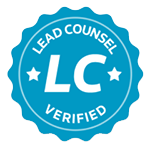Suffering from a catastrophic spinal cord injury in an incident at work can be a life-altering experience. Not only do you have to think about the healing process that you’ll have to go through, you also need to consider how your ability to earn an income and support yourself might be affected.
There are some clues that might give you some information about what type of recovery you might expect. Asking these questions may help you as you try to plan your future after the accident.
Where is the injury?
The location of the injury is important because spinal cord injuries affect the areas of the body below the injury. This means that one that’s in the neck will affect a larger part of the body than one that’s in the lower back. Talk to the medical care team about how your specific injury might affect you. Don’t think only about paralysis of the limbs. Find out about your internal organs, too.
Is it complete or incomplete?
A complete injury is usually associated with less healing than an incomplete one. A person who doesn’t have any sensation or an ability to move the body below the level of the injury has a complete injury. If there is any sensation or ability to move, regardless of how slight, the injury is incomplete.
Because you’ll likely have considerable medical care needs and may not be able to return to work, you should file a workers’ compensation claim. While these usually go through without any issues, some individuals have to fight for the benefits they’re due. Working with a knowledgeable attorney is beneficial.



